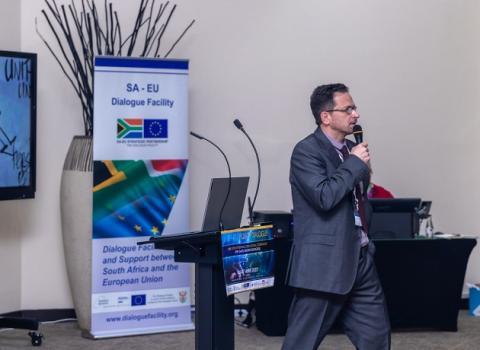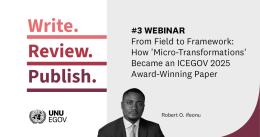UNU-EGOV's Senior Academic Fellow Dimitrios Sarantis was invited to deliver a presentation at the SA/EU International Dialogue on Strengthening Digital Governance in South Africa on 6 and 7 April 2022. Dimitrios' presentation focused on presenting the Operating Unit's knowledge and experience on aspects related on strengthening digital governance in South Africa.
The SA-EU Digital Dialogues combine traditional knowledge-based engagements (policy dialogues and seminar styles) with "beyond talk" creative co-design sessions (studios or clinics) where practitioners have the opportunity to exchange experiential knowledge and engage in facilitated, creative collective intelligence explorations and knowledge building around unique, mutual or new issues on the horizon. This high-level engagement has been attended by select key policy-makers and invited stakeholders in the digital governance space.
The policy dialogues were facilitated by the University of Witwatersrand and the Danish Agency for Digitisation, and are envisaged to contribute to producing strategic insight and guidance towards developing and implementing pragmatic and responsive strategies and roadmaps for effective digital governance in current and anticipated future socio-economic conditions. The event also involved case study research, practice studios, study tours, and policy / strategy drafting.




